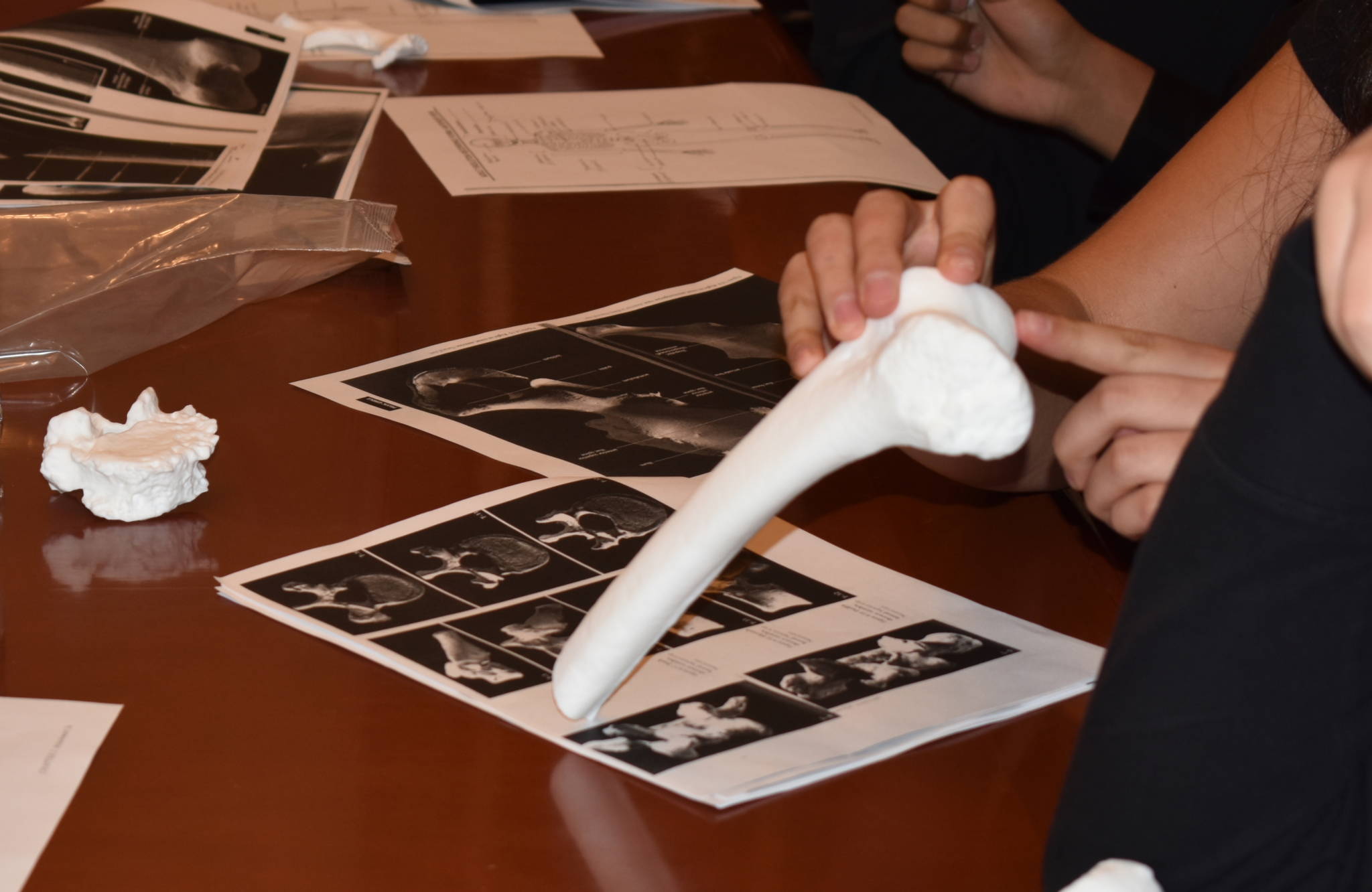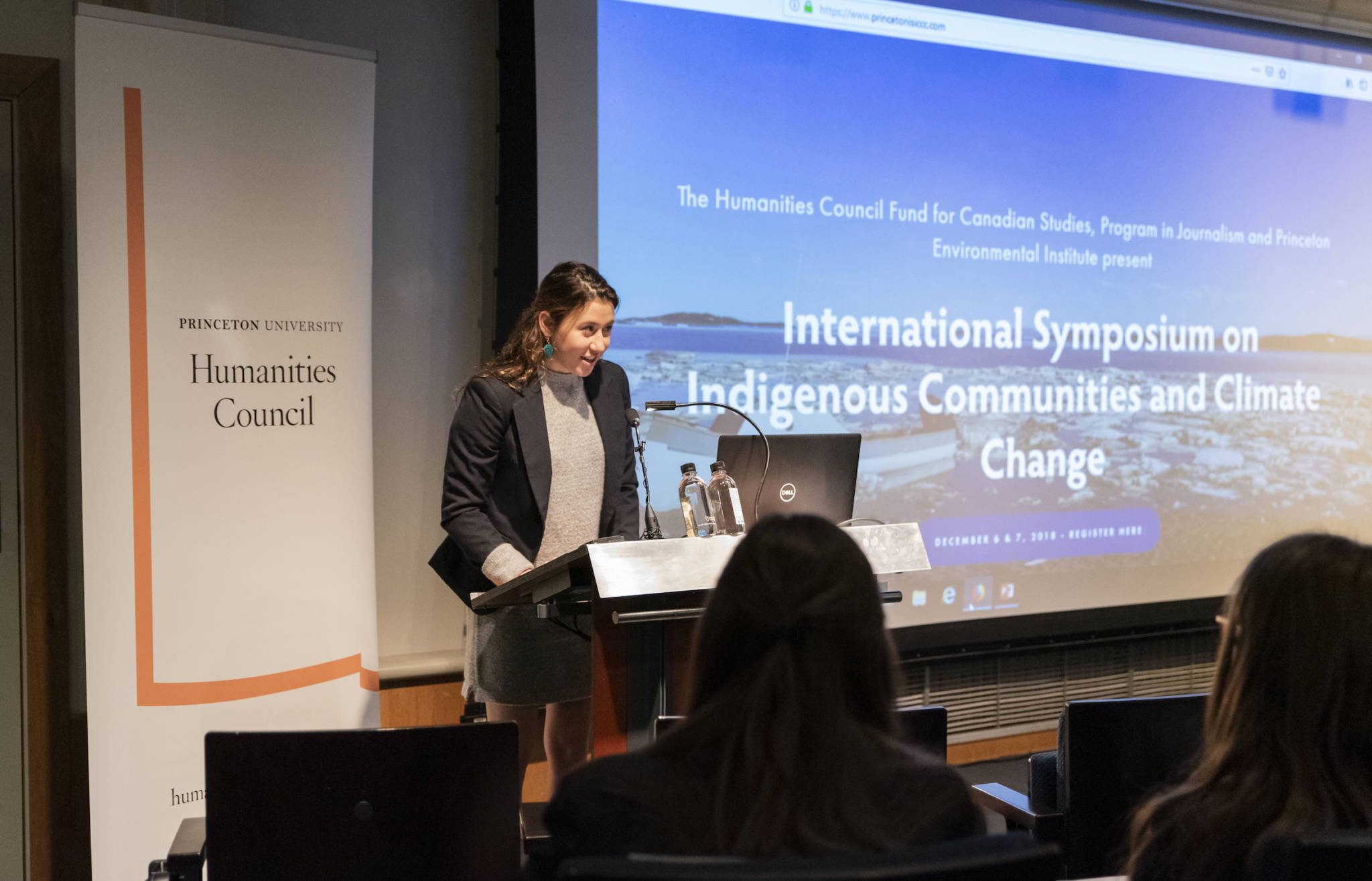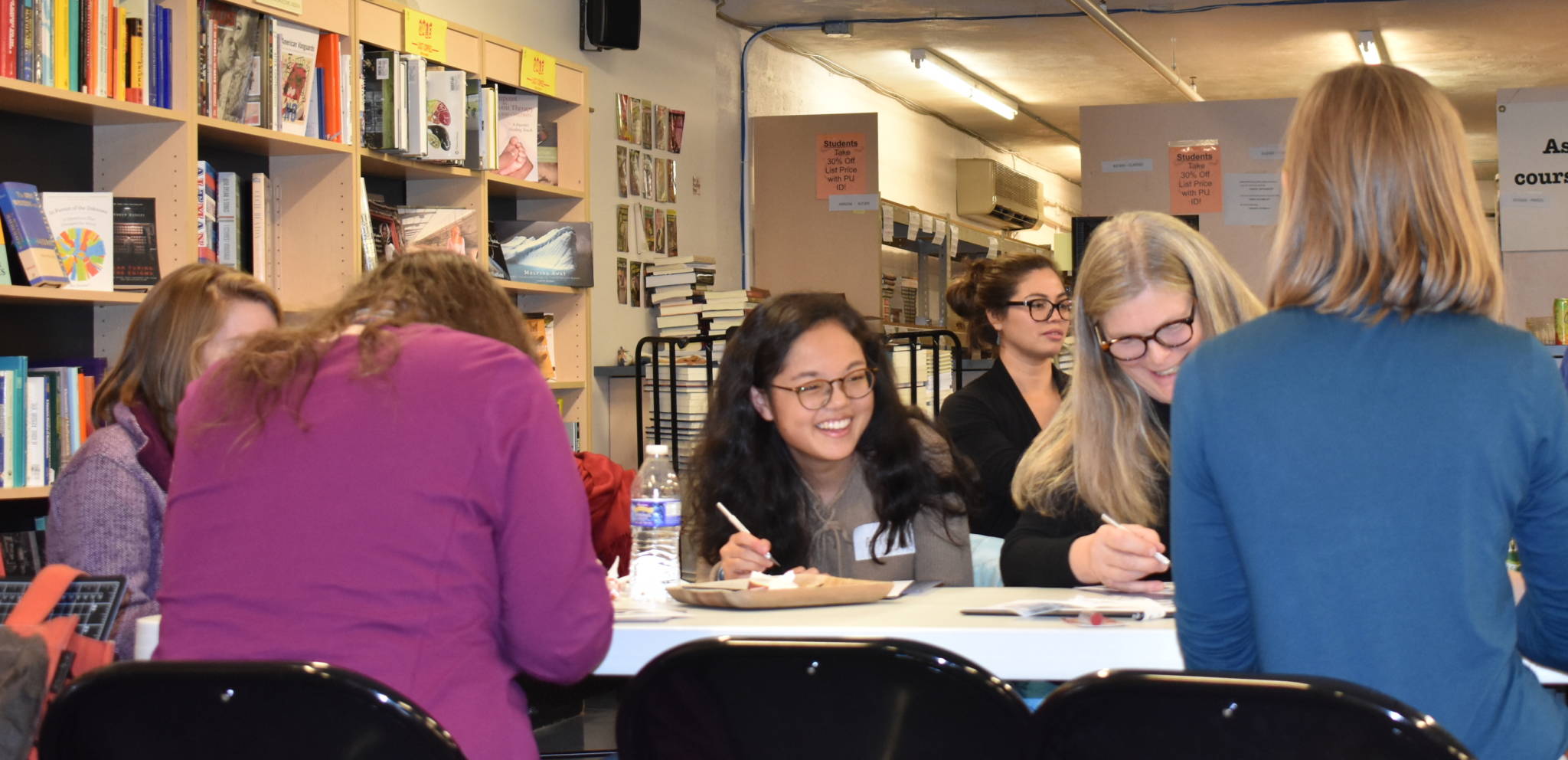Princeton’s first Being Human festival demonstrated a diverse and strong appetite for engagement with the humanities over an inaugural five-week season. Seven events, both big and small, brought participants into archaeology, history, literature, and cultural studies. Over 250 people attended New Jersey-based Being Human events, which included days out, workshops, talks, tours, and storytelling.
Events such as Public Archaeology Day at the Princeton Battlefield and Slavery in Princeton and Brazil showcased scholarship about Princeton’s New Jersey environs. Whether outdoor in the crisp autumn air of the Battlefield or in the seminar room, participants engaged in dialogue with presenters, underlining how much New Jersey’s history attracts enthusiastic interest.

Local high school students examine 3D-printed bones in Postdoctoral Fellow Janet Kay’s “Studying the Past by Digging in the Dirt” workshop.
Other events, such as Paper Cutting with Dan Landau and Studying the Past by Digging in the Dirt, emphasized hands-on learning. Whether learning the foundations of an ancient art or stepping into the shoes of the kinds of evaluation archaeologists need to make, these opportunities focused on the opportunity try out techniques that enrich life and the understanding of how scholars create and evaluate knowledge.

Charlotte Driver, one of 15 seniors at Stuart Country Day School of the Sacred Heart, opened day two of the International Symposium on Indigenous Communities and Climate Change by reading a “land acknowledgment” that the students had crafted for the symposium.
Matangi/Maya/M.I.A. and the International Symposium on Indigenous Communities and Climate Change found their audiences in New Jersey’s concern for diversity and inclusion, especially for diverse populations. The compelling stories shared in quite different media provoked compelling conversations.

Members of the Northeast Organic Farming Association of New Jersey join Princeton students and faculty for a special tour of the Princeton Art Museum’s exhibit “Nature’s Nation: American Art & the Environment.”
Being Human also encouraged events that made special efforts to share the collections held by the University’s Museum and Library. Not only did visitors have the chance to explore new acquisitions in Rare Books and Special Collections collection of Brazilian material as part of Slavery in Princeton and Brazil; Examining an Agricultural Nature’s Nation took advantage of collections and loans making up the Princeton Art Museum’s current main exhibition for a large local audience of farmers and others who share interests in agriculture in the American national project.
Being Human touched on the unique characteristics of local, national, and global concerns in contemporary America, much like its sister events in the U.K., Australia, Singapore, France, and Italy.
• Public Archaeology Day, organized by Professors Nathan Arrington and Rachael Z. DeLue in the Department of Art and Archaeology in cooperation with the Princeton Battlefield Society.
• Matangi/Maya/M.I.A., organized by the Princeton Clay Project (Zoe Zeitler and Mariachiara Ficarelli) with the assistance of the PACE Center for Civic Engagement.
• Studying the Past by Digging in the Dirt, organized by Dr. Janet Kay, Society of Fellows and Department of History, with the assistance of the Humanities Council.
• An Evening of Paper Cutting with Dan Landau, organized by Sonja Andersen, graduate student in the Department of German.
• Slavery in Princeton and Brazil, organized by Miequeias Mugge, postdoctoral fellow in the Brazil LAB, with the participation of Andre Biehl, Princeton High School and Fernando Acosta-Rodriguez, curator of Latin American collections in Special Collections of the Firestone Library.
• Examining an Agricultural Nature’s Nation, organized by Tessa Lowinske Desmond, research scholar in American Studies, with the collaboration of Northeast Organic Farming Association of New Jersey and assistance of the Juliana Dweck at the Princeton Art Museum.
• International Symposium on Indigenous Communities and Climate Change, organized by Candis Callison and Simon Morrison through Canadian Studies and the Program in Journalism, with the participation of students from Stuart Country Day School of the Sacred Heart.
















